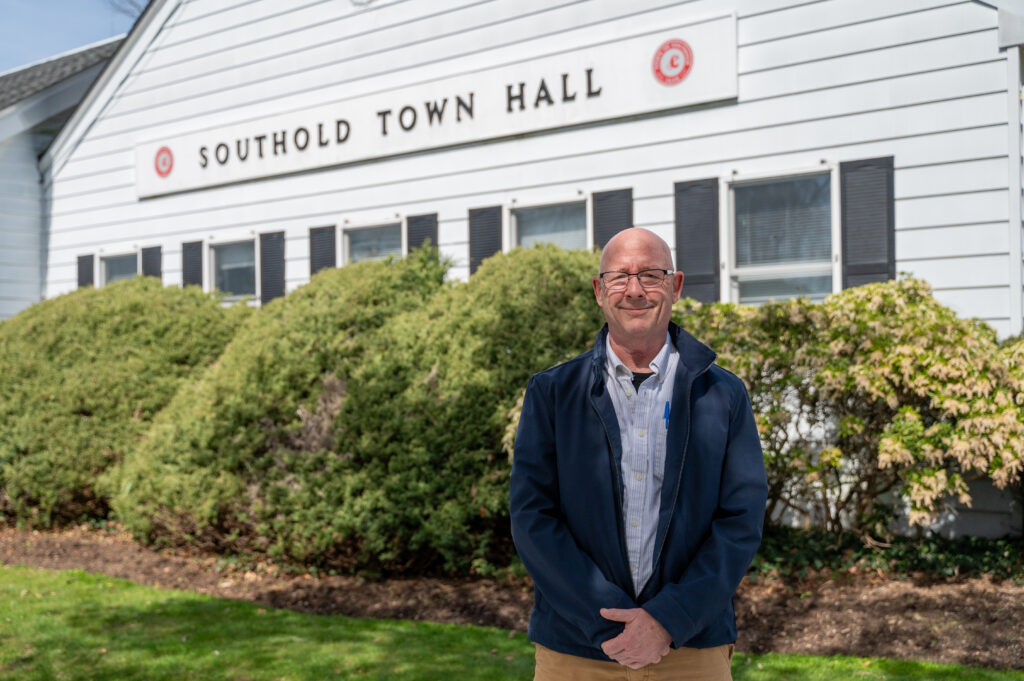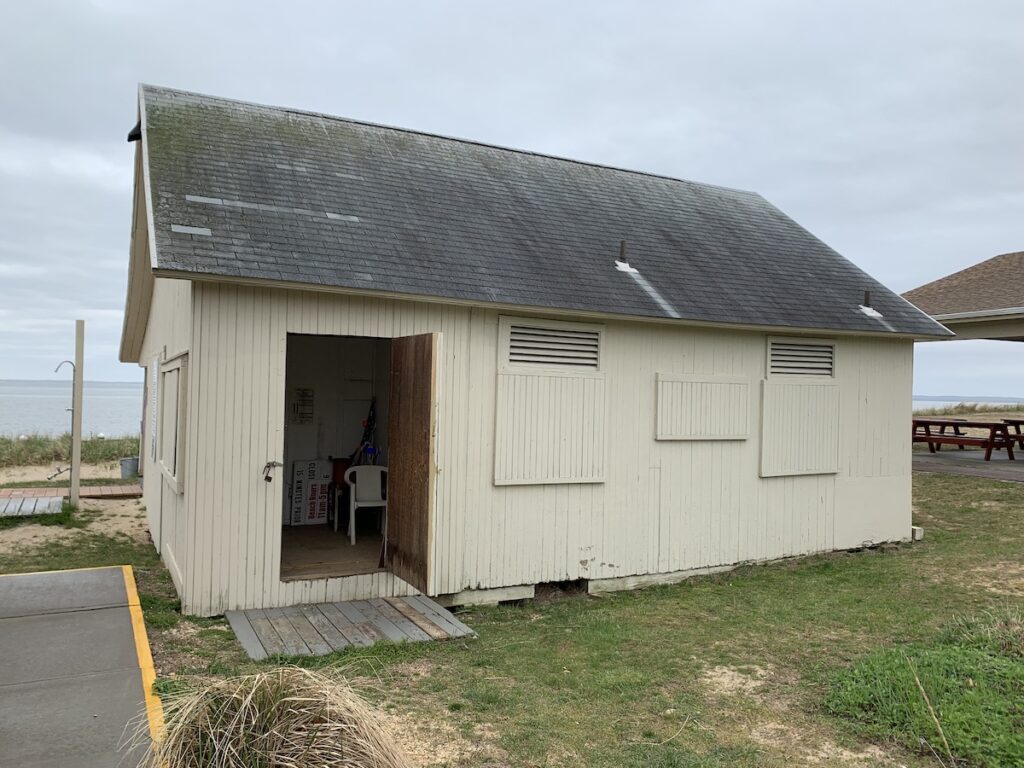Closing of Satur Farms’ packaging plant another sign of challenges facing North Fork farmers

More than 25 years ago, Paulette Satur and her husband, Eberhard Muller, an acclaimed chef at iconic Manhattan restaurants like Le Bernardin and Lutece, bought an 18-acre farm in Cutchogue where potatoes had once been grown.
Their idea was to cultivate a variety of vegetables and sell them directly to restaurants. In doing so, they were early pioneers in what later became known as the farm-to-table movement.
Satur Farms, as they called their business, filled a particular niche and soon the couple was leasing other farmland on the North Fork and selling leafy greens to places like Whole Foods, King Kullen and FreshDirect. Their brand become very well known, anchored as it was to the North Fork’s rich soil.
Today, nearly three decades after they planted their first crops on their Cutchogue farm, the future of their business is uncertain. The large building they leased in Calverton as a washing, processing, packaging and distribution facility is being shuttered because the rent has skyrocketed, Ms. Satur said.
“We can’t afford that increase,” she said. “It’s too steep for our operation.”
On top of that, their future use of 140 acres in Cutchogue that are crucial to their successful leafy green business is up in the air. The couple’s lease on the land ends in April, and the land’s owner, the Soloviev Group, has not told them if it will be extended.
“We don’t comment on the status of leases between the Soloviev Group and external businesses”,” Hayden Soloviev, a spokesperson for the family, said, He declined to address a question about whether the group will seek town approvals for housing development of that parcel.
In an interview last week at the Calverton facility, both Ms. Satur and Mr. Muller said the 140 acres in Cutchogue is essential to their operation. “We need a certain critical mass of land in order to maintain the level of business we have,” Mr. Muller said.
On the day of the interview, crews were removing equipment from the building, which the couple said they would vacate on the last day in January. As for why they are leaving the facility, Ms. Satur said in a separate interview, “There are many reasons, but the main one is that the rent has almost tripled. We’ve contracted with another company, which will pack our greens.”
She said she is working with the New York State Department of Labor to find jobs for their 40 employees. “I’ve helped eight of them get new jobs so far with another distributor. There’s a worker shortage so the workers will be welcome elsewhere.”
Ms. Satur added that she and her husband are selling the washing and packing equipment at the processing facility. She declined to identify where the farm’s new packing facility is located.
In the interview, both Ms. Satur and Mr. Muller said they did not know if they would be allowed to continue to farm the 140 acres in Cutchogue owned by the Soloviev Group. They declined to speculate on the future of Satur Farms if that land was unavailable to farm.
“We will cross the bridge when we come to it,” Mr. Muller said. “If we can’t continue there, we will adjust — we will pivot.” Ms. Satur agreed with her husband, saying, “We will have to readjust.”
But both said that 140 acres, the largest part of the approximately 200 acres they have farm, is critical.
Word that Satur is leaving the Calverton facility due to rising rent, and the uncertainty of their use of the 140 acres, comes just two weeks after the Peconic Land Trust was hailed for its purchase of 151 acres in the Oregon Road farm belt in Cutchogue and its sale of two parcels totaling 38 acres to two local growers.
Both Ms. Satur and Mr. Muller praised that sale, but said the parcels are too small and far too expensive, totaling in the millions of dollars. “For something like what we do to be successful,” she said, “we need larger parcels. Those would be too small.”
Rob Carpenter, the executive director of the Long Island Farm Bureau, praised Satur Farms as being one of the region’s best argricultural operations. But he said the headwinds for that business , and many others, may bee too stiff to successfully navigate.
“Whether it’s the high cost of production, rising rents, land prices, the regulations about processing and land use — it’s more and more difficult for agriculture here to continue to evolve,” he said. “But they built a really great business.”
Mr. Carpenter said the issue of land availability is not unique to Satur Farms. “There are fewer and fewer large parcels available to rent, and the prices are far too high to purchase for a farm business,” he said. “Maybe they (Satur Farms) could find 15 acres here, 20 acres there, but they need large, contiguous pieces and that’s harder and harder to find with all the development pressures.”
He cited other reasons — including rising state-mandated minimum wage increases and changes in overtime rules for farm workers — as contributing to the challenges impacting the North Fork’s historic farms.
In announcing the Peconic Land Trust’s purchase of the Cutchogue farmland, John Halsey, the Trust’s director, noted that soaring land prices — particularly on the South Fork — have made it extraordinarily difficult for existing farmers to acquire more land. North Fork prices are close behind.
“There are people buying up land and the availability of land is diminishing,” he said. “Leasing land means you are not in control of your destiny; buying land and owning it takes care of that.”
Mr. Muller came to farming when he and his wife started Satur Farms in 1997 after he’d had an extraordinary career as a chef. He began work in Manhattan at Windows of the World. In 1985 he helped open Le Bernardin, which went on to receive four stars from The New York Times. In 1994, he was named executive chef at Lutece.
Three years after that, he and Ms. Satur donned work boots and began planting in Cutchogue.
additional reporting by
Deborah Wetzel








